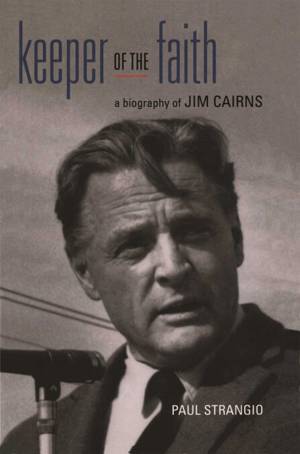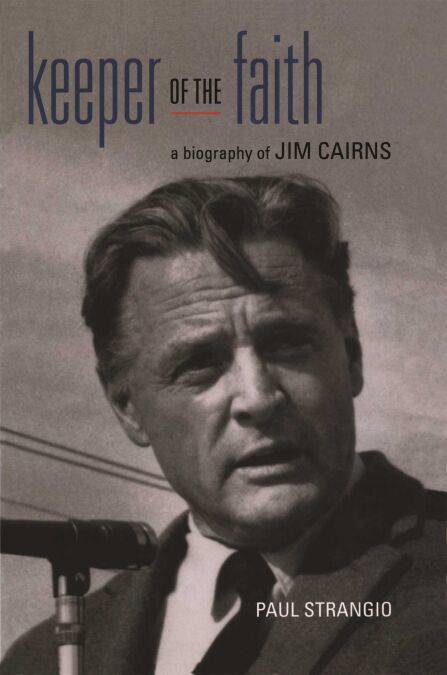
- Afhalen na 1 uur in een winkel met voorraad
- Gratis thuislevering in België vanaf € 30
- Ruim aanbod met 7 miljoen producten
- Afhalen na 1 uur in een winkel met voorraad
- Gratis thuislevering in België vanaf € 30
- Ruim aanbod met 7 miljoen producten
Zoeken
€ 21,80
+ 21 punten
Omschrijving
Jim Cairns is a familiar sight around the markets of Melbourne, seated at a table stacked with copies of his latest book. It seems an unlikely occupation for a man who was once the driving force and major thinker in the Labor Party Left, a man who reached the positions of Deputy Prime Minister and Treasurer in Australia's most reformist government under Gough Whitlam.
Cairns' post-1975 trajectory bewildered many of his one-time followers, not least the significant section of the baby-boomer generation who rallied behind him during the Moratoriums against the Vietnam War. To some he is a tragic fallen hero; to others, a relic of an earlier age of idealism.
But Cairns was never a conventional politician. In this mature and sophisticated biography, Paul Strangio draws a compelling picture of the inner man, revealing a consistent thread running through the apparent contradictions of Cairns' public career. He explains how a policeman turned into a counter-culture guru; how an opponent of capitalism became Treasurer of Australia; how a devoted husband could feel 'a kind of love' for Junie Morosi.
Both highly readable and carefully researched, Keeper of the Faith reassesses the part Cairns played in shaping Australian public life. In tracing his ideological and political rivalry with Whitlam, it challenges the popular nostalgia that surrounds his former leader.
Strangio argues that Cairns' contribution to public life, especially as a voice of dissent against the established order, has been seriously underestimated. Drawing on a rich range of archival and oral sources, and recounting many fascinating anecdotes, this is a masterly portrait of one of those rare people who never waver in their search for truth.
Cairns' post-1975 trajectory bewildered many of his one-time followers, not least the significant section of the baby-boomer generation who rallied behind him during the Moratoriums against the Vietnam War. To some he is a tragic fallen hero; to others, a relic of an earlier age of idealism.
But Cairns was never a conventional politician. In this mature and sophisticated biography, Paul Strangio draws a compelling picture of the inner man, revealing a consistent thread running through the apparent contradictions of Cairns' public career. He explains how a policeman turned into a counter-culture guru; how an opponent of capitalism became Treasurer of Australia; how a devoted husband could feel 'a kind of love' for Junie Morosi.
Both highly readable and carefully researched, Keeper of the Faith reassesses the part Cairns played in shaping Australian public life. In tracing his ideological and political rivalry with Whitlam, it challenges the popular nostalgia that surrounds his former leader.
Strangio argues that Cairns' contribution to public life, especially as a voice of dissent against the established order, has been seriously underestimated. Drawing on a rich range of archival and oral sources, and recounting many fascinating anecdotes, this is a masterly portrait of one of those rare people who never waver in their search for truth.
Specificaties
Betrokkenen
- Auteur(s):
- Uitgeverij:
Inhoud
- Aantal bladzijden:
- 500
- Taal:
- Engels
Eigenschappen
- Productcode (EAN):
- 9780522863659
- Verschijningsdatum:
- 13/06/2013
- Uitvoering:
- E-book
- Beveiligd met:
- Adobe DRM
- Formaat:
- ePub

Alleen bij Standaard Boekhandel
+ 21 punten op je klantenkaart van Standaard Boekhandel
Beoordelingen
We publiceren alleen reviews die voldoen aan de voorwaarden voor reviews. Bekijk onze voorwaarden voor reviews.











